Xiaomi’s Automated Electric Car Factory: Building Efficiency in Just Over a Year
Imagine a state-of-the-art electric car factory that took just over a year to build, is fully automated, and can produce a car every 76 seconds. This remarkable achievement belongs to Xiaomi, the renowned technology giant. Let’s take a closer look at their impressive facility.
A Vision Come to Life
In a recent unveiling event for Xiaomi’s electric car, the CEO, Lei Jun, introduced the company’s production plant. Situated in the Beijing Economic and Technological Development Zone, the factory spans 720,000 square meters, encompassing six main workshops, 29 R&D labs, and a 2.5 km testing facility.
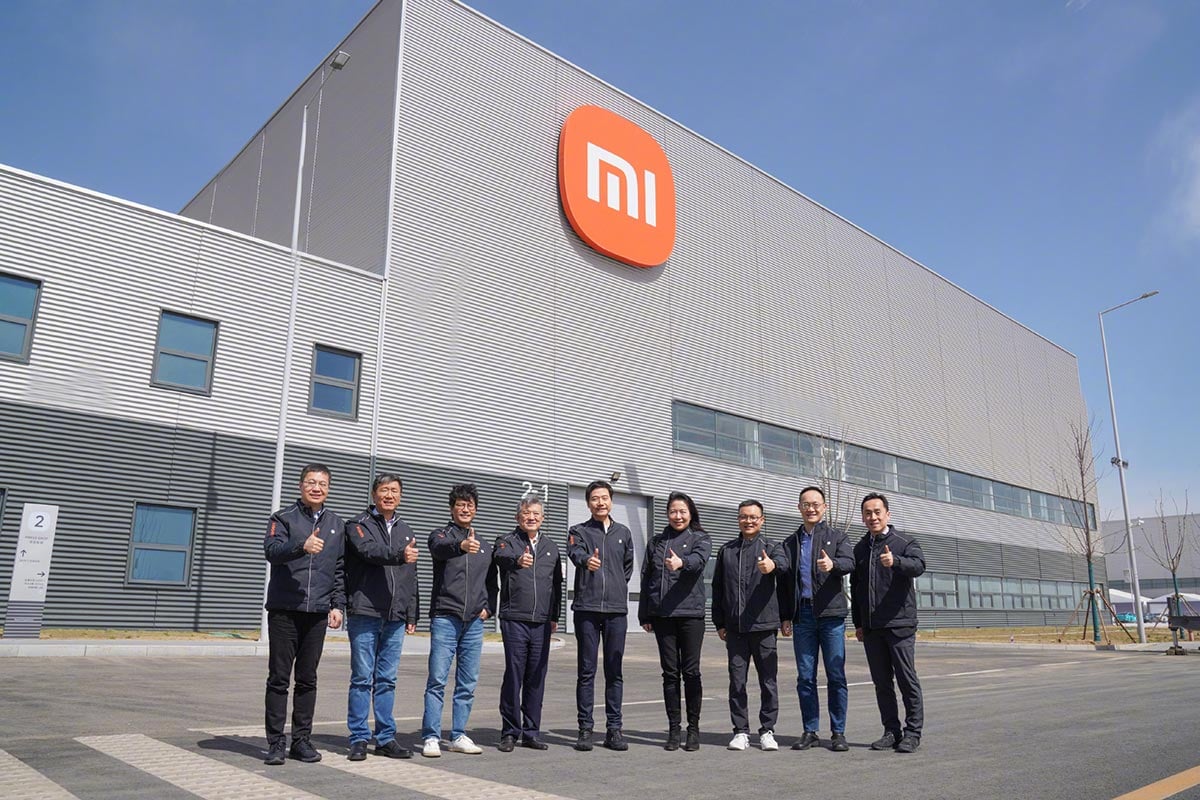
Phased Development
The factory was constructed in two phases. Phase 1, covering approximately 720,000 square meters, began in April 2022 and was completed in June 2023. Phase 2 is planned to commence in 2024 and conclude in 2025. The completed sections include the factories 1, 2, 3, and 4, along with a dedicated testing building. These facilities support processes such as stamping, welding, painting, assembly, and battery production. On June 12, the factories underwent final acceptance inspections.
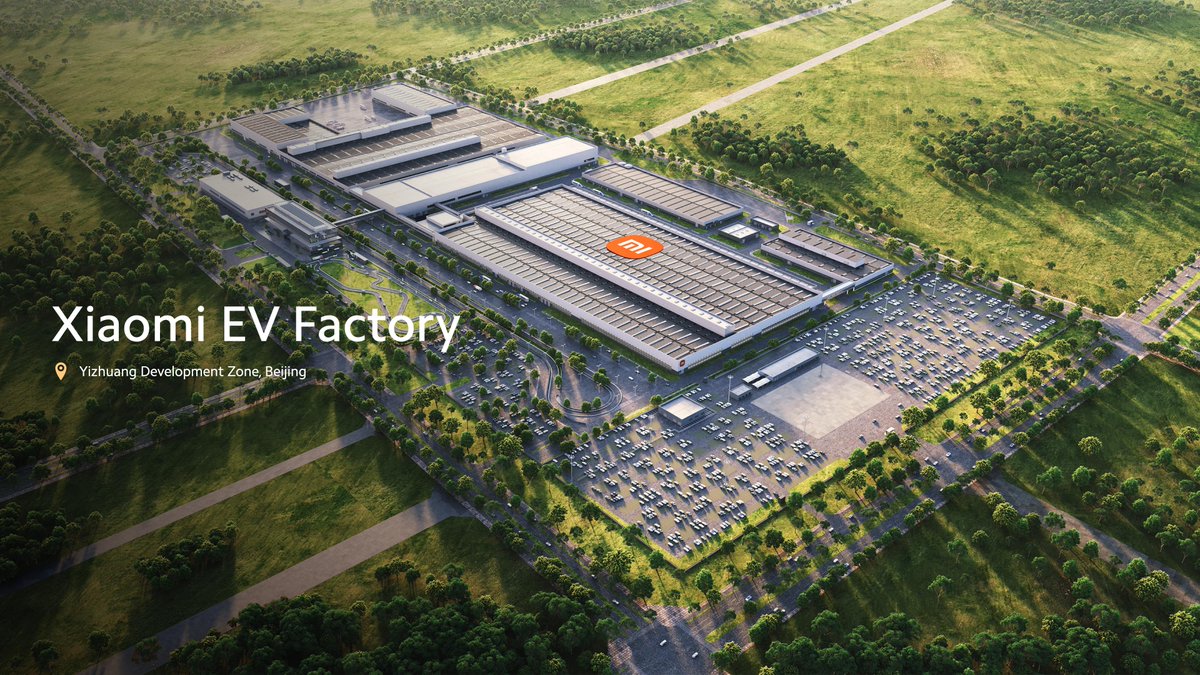
A Symphony of Automation
Equipped with over 700 robots, Xiaomi’s factory boasts 100% automation across critical processes. These systems include the assembly of steel and aluminum car frames, installation of doors, hoods, and mudguards, automated transportation of medium to large-sized components, and a cutting-edge 7-axis robotic painting system. Even the inspection processes are completely automated, incorporating ultraviolet exterior checks, radar laser chassis inspections for the entire vehicle, and X-ray inspections for cast parts.
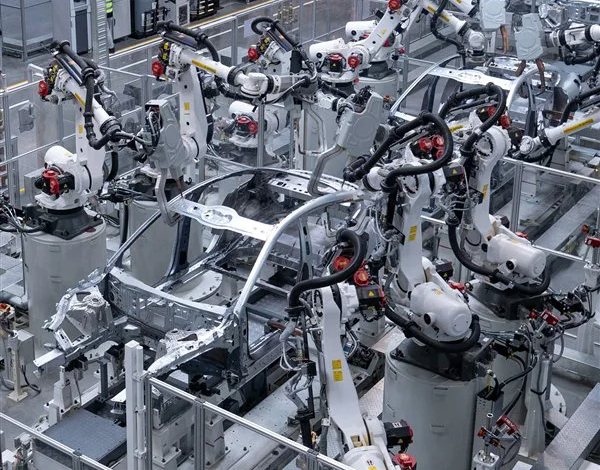
Unprecedented Efficiency
With this advanced production line, once it reaches maximum capacity, a Xiaomi SU7 rolls off the line every 76 seconds. The level of automation and precision achieved by Xiaomi ensures a seamless and rapid manufacturing process.
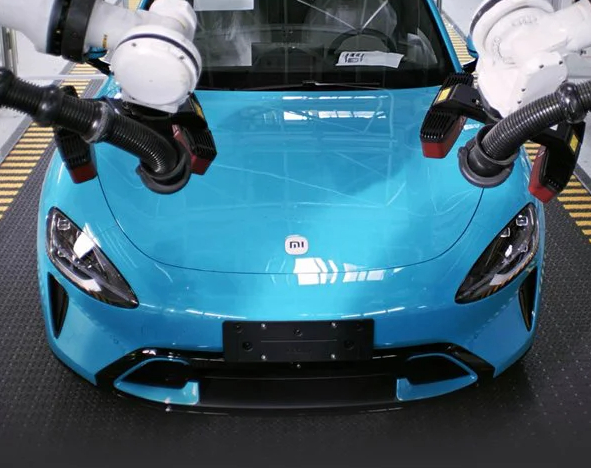
A Commitment to Sustainability
Xiaomi’s factory also prioritizes environmental protection. The roof of each workshop is covered in solar panels, capable of generating 16.4 million kWh of electricity annually. The facility also achieves a 99% exhaust gas treatment efficiency and employs recycled aluminum for high-pressure die-casting.
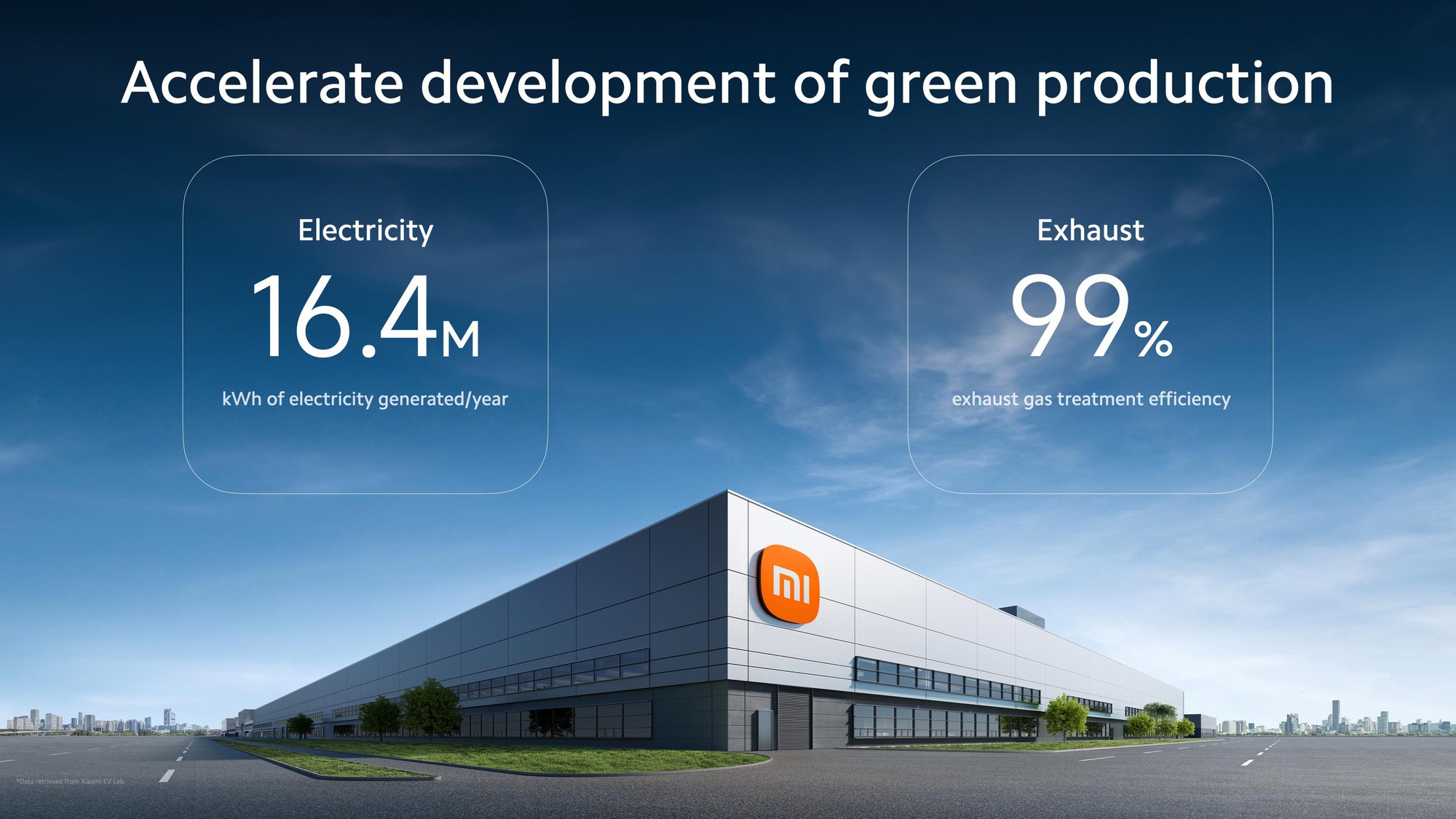
Meeting the Demand
Xiaomi has encountered a challenge due to overwhelming demand for their electric cars. Within minutes of launch, their SU7 model achieved sales figures of over 10,000 units in just four minutes, 20,000 units in seven minutes, and 50,000 units in 27 minutes. This exponential demand has led to concerns about production capacity.
A Xiaomi employee shared, “Initially, our production capacity was insufficient. Although there are many pre-orders, the delivery time remains a pressing issue,” while speaking to Sina Technology.
Even CEO Lei Jun has expressed worries about excessive wait times affecting Xiaomi’s reputation, stating, “I worry that if everyone buys a car and has to wait one or two years, it will affect our reputation.”
To address this challenge, Xiaomi plans to increase production to 2,000 cars per month by March and exceed 10,000 cars per month by July.
As Xiaomi continues to push the boundaries of technological innovation in the automotive industry, their automated electric car factory stands as a remarkable testament to efficiency and sustainability. By combining cutting-edge automation with a commitment to the environment, Xiaomi is paving the way for a greener and smarter future.
For more information on the latest developments in finance and technology, visit Business Today.
